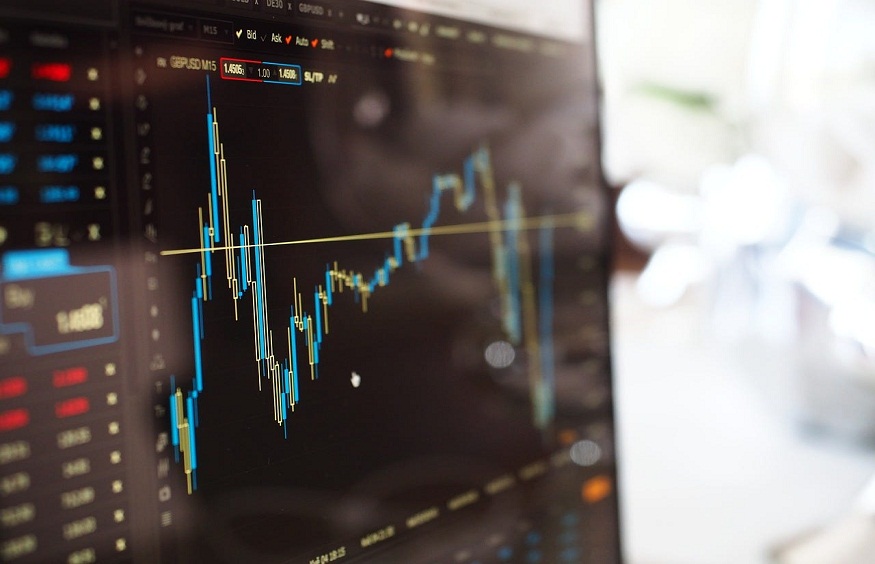A Demat account is an essential tool for investing in the stock market. With the increasing popularity of digital trading, Demat account apps have made it convenient for investors to manage their portfolios from their smartphones. However, one aspect that new and even experienced investors often overlook is the fees and costs associated with these accounts. Understanding these fees is crucial, as they can significantly impact your overall returns. In this article, let’s explore the fees and costs involved in Demat account apps or share market app and how you can manage them effectively.
Fees and Costs in Demat Account Apps
The fees and charges of using a Demat account app are mentioned below.
1. Account Opening Charges
The first cost you may encounter when opening a Demat account is the account opening charge. While some Depository Participants (DPs) offer free account opening as part of promotional offers, others may charge a fee. This fee is usually a one-time payment made at the time of account creation. It’s important to compare account opening charges across different DPs before making a decision.
2. Annual Maintenance Charges (AMC)
Annual Maintenance Charges (AMC) are fees that are levied on your Demat account every year for maintaining the account. AMCs can vary significantly depending on the DP and the type of account. For example, basic Demat accounts may have lower or no AMC, while premium accounts offering additional services may have higher charges.
AMCs can range from a few hundred to a few thousand rupees per year. Some DPs also offer lifetime free Demat accounts, which means you won’t have to pay AMCs, but they may compensate for this with higher transaction fees. Before opening a Demat account, it’s wise to calculate how AMCs will affect your investment, especially if you plan to hold the account for a long period.
3. Transaction Charges
Transaction charges are fees incurred whenever you buy, sell, or transfer securities. These charges are usually levied as a percentage of the transaction value, although some DPs may charge a flat fee per transaction. Transaction charges are a key area where costs can add up, especially for active traders who execute multiple trades daily.
It’s also worth noting that different types of securities may attract different transaction charges. For instance, equity trades may have different charges compared to bonds or mutual funds. Make sure you’re aware of these charges in a Demat account mobile app to avoid any surprises when you start trading.
4. Custodian Fees
Custodian fees are charged by DPs for holding your securities in electronic format. These fees are generally nominal and may be charged monthly, quarterly, or annually. Custodian fees typically apply to debt securities and may not apply to equity holdings. However, it’s essential to check with your DP to understand whether custodian fees will apply to your portfolio and how often they will be charged.
5. Dematerialization and Rematerialization Charges
When you convert physical certificates into electronic form, it’s known as dematerialization, and when you convert them back into physical certificates, it’s called rematerialization. Both processes incur fees. Dematerialization charges are generally lower and are often a one-time fee per certificate. Rematerialization charges, on the other hand, can be higher and are typically levied on a per-request basis.
Investors who still hold physical certificates may want to dematerialize them to avoid potential risks and costs associated with holding physical documents. However, it’s essential to be aware of the charges involved in both processes.
6. Off-Market Transfer Charges
Off-market transfers refer to the transfer of securities between Demat accounts outside of the stock exchange. This might occur in situations like gifting shares or transferring securities to a family member. Off-market transfer charges are usually levied as a percentage of the transaction value and may vary depending on the DP.
These charges can be higher than regular transaction fees, so it’s important to consider them if you plan to transfer securities between accounts.
7. Taxes and Regulatory Fees
In addition to the charges levied by the DP, you will also incur taxes and regulatory fees, such as the Securities Transaction Tax (STT), Goods and Services Tax (GST), and stamp duty. These fees are generally calculated as a percentage of the transaction value and are automatically deducted by the DP. While these are mandatory charges, being aware of them can help you better understand the total cost of each trade.
Conclusion
Understanding the various fees and costs associated with Demat accounts is crucial for maximizing your investment returns. By being aware of these charges, you can make informed decisions, compare different DPs, and choose the one that offers the best value for your trading and investment needs. HDFC SKY by HDFC Securities is a robust and user-friendly platform that provides clear and transparent information about all fees associated with your Demat account. It offers a competitive fee structure, along with advanced tools and features that make managing your investments easier and more efficient.

